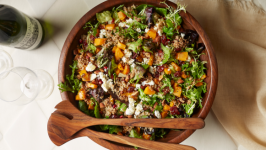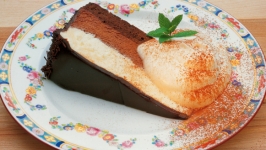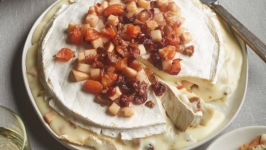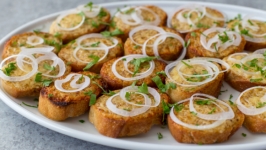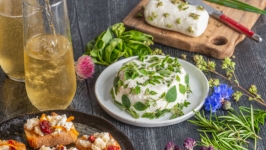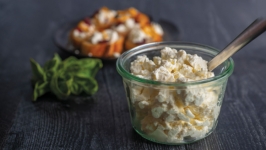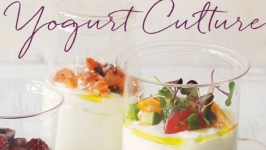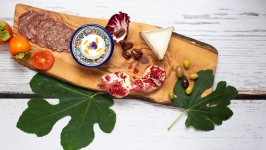Ingredients
- 1 teaspoon citric acid
- 2.25 litres (4 pints/9½ cups) goat’s milk
- 2 teaspoons salt
- A cheesecloth or muslin sheet
- An instant-read thermometer
- 2 goat cheese moulds (optional)
About this recipe
EdibleSV Test Kitchen
Recipes tested and photographed by Paulette Phlipot for Edible Silicon Valley.
Instructions
Dissolve the citric acid (a powder derived from lemon juice) in 50ml (1¾ ounces) cooled boiled water, stirring until completely dissolved.
Put the milk and citric acid mixture into a pan and stir well. Heat the milk over a medium heat to 85°C (185°F), stirring continuously.
Once the milk is at the required temperature, remove from the heat. You should be able to see that the curds and whey have separated, but don’t worry if not.
Set the pan aside, covered, for 30 minutes.
While the curds are resting, lay the cheesecloth or muslin over a colander in a bowl. When rested, gently pour in the curds. Drain, add the salt and mix gently.
Create a (tied) cloth bag and hang the curds over a sink or a bowl for about 1 hour to allow the whey to drain off.
Now you can shape the cheese by hand or ladle and press into moulds. This cheese can be eaten straight away or left in the refrigerator to firm up a little more.
Store for up to 1 week in a sealed container in the refrigerator.
You can also add flavors to your cheese try using fresh herbs, chopped sundried tomatoes or olives, or even sweeter flavors like raspberries and strawberries. You could also coat your goat’s cheese in herbs or black pepper. Don’t be afraid to experiment.
